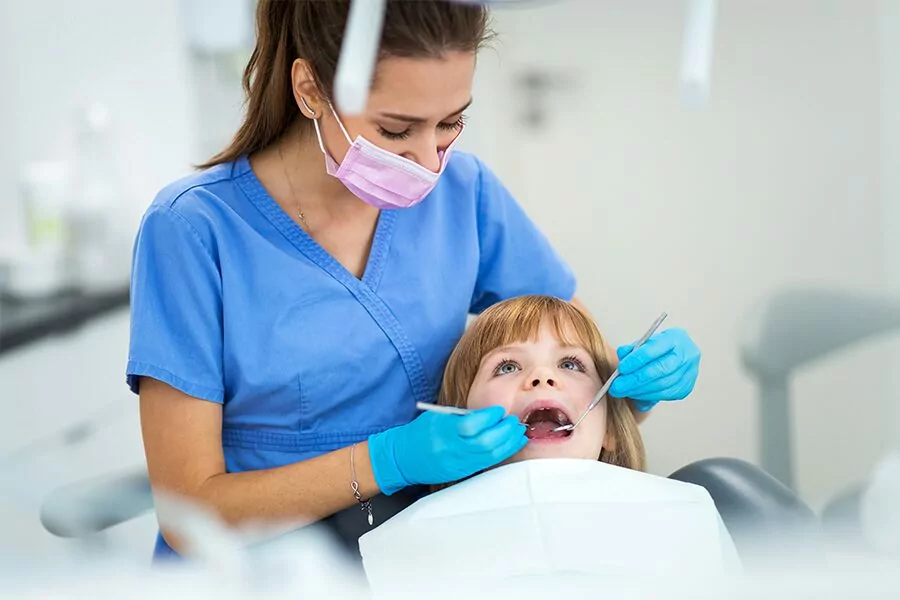A Guide to Common Dental Conditions That Require a Dental professional's Care
Understanding the variety of oral problems that necessitate professional treatment is critical for preserving optimal oral wellness. Toothaches, as an example, can be symptomatic of severe issues such as dental caries, fractured teeth, or abscesses, each calling for details treatments like dental fillings or root canals. Periodontal disease, from the beginning of gingivitis to extra extreme periodontitis, emphasizes the value of routine oral exams and cleansings. Moreover, impacted wisdom teeth and jaw problems can introduce significant discomfort and problems. Making certain prompt brows through to the dental expert can reduce these concerns efficiently, yet exactly what are the therapies and indications included?
Toothaches
Toothaches are a common dental problem that can range from moderate pain to serious discomfort, often suggesting a hidden concern that requires expert focus. This discomfort can stem from a range of resources, consisting of tooth decays, split or fractured teeth, and oral abscesses. Each of these problems positions substantial risks if left without treatment, possibly causing more severe problems.
Dental cavities, also understood as caries, are triggered by the accumulation of plaque that erodes tooth enamel, leading to openings or pits in the affected teeth. Abscesses are unpleasant infections at the root of a tooth or between a tooth and the periodontal, usually resulting from severe degeneration or without treatment dental caries.
Efficient treatment of toothaches entails attending to the root reason. This might include fillings for dental caries, crowns for split teeth, or root canals and anti-biotics for abscesses. Early intervention by an oral professional can prevent more degeneration and relieve pain, making certain ideal oral wellness.
Gum Tissue Illness

The main root cause of gum tissue condition is bacterial plaque, a sticky, colorless movie that constantly bases on teeth. Poor dental hygiene, smoking, hereditary tendency, and particular medical problems, such as diabetes, can aggravate the danger of establishing periodontal condition. Normal oral examinations are vital for early discovery and administration of this problem.
Treatment for gum tissue condition ranges from specialist dental cleansing and scaling to advanced treatments like root planing and gum surgical procedure, depending upon the severity. Preserving excellent oral hygiene techniques, including cleaning two times daily, flossing, and utilizing an antibacterial mouth wash, can considerably decrease the danger of periodontal condition and promote healthier gum tissues.
Dental Caries
Cavities, also referred to as oral caries, are a common dental condition characterized by the devastation of tooth enamel as a result of acid-producing bacteria in the mouth. These bacteria prosper on sugars and starches from food and drinks, producing acids that gradually deteriorate the enamel, resulting in dental caries formation.
Early-stage tooth cavities may disappoint signs and symptoms, but as they advance, they can trigger tooth pain, level of sensitivity to cool or hot, noticeable openings or pits in the teeth, and staining. If left untreated, cavities can pass through deeper layers of the tooth, possibly resulting in serious pain, infection, and also missing teeth.
Stopping tooth cavities includes a combination of good oral health methods and dietary behaviors. Routine brushing with fluoride tooth paste, flossing, and routine oral exams are essential. Dental professionals may also advise added precautionary measures, such as fluoride therapies and dental sealers, to safeguard teeth from decay.
Minor dental caries can be addressed with oral fillings, which restore the tooth's structure. More sophisticated instances may call for crowns or also root canal therapy if the degeneration has actually reached the tooth's pulp.
Impacted Knowledge Teeth
Affected knowledge teeth are a prevalent oral problem that happens when the 3rd molars, typically described as knowledge teeth, stop working to totally emerge or line up effectively within the mouth. This condition frequently arises from inadequate area in the jaw or an visit their website abnormal growth angle Visit This Link of the teeth. Influenced knowledge teeth can lead to a range of complications, consisting of pain, damages, and infection to adjacent teeth.
When wisdom teeth end up being impacted, they are often partially erupted or continue to be completely underneath the periodontal line. This partial eruption can develop a pathway for microorganisms to enter the gums, bring about infections that materialize as swelling, pain, and also high temperature (eugene dentist). Furthermore, influenced wisdom teeth can exert stress on bordering teeth, possibly creating crowding or shifting
A thorough oral assessment, typically including X-rays, is vital for identifying impacted wisdom teeth. Normal dental exams are suggested to keep an eye on the condition and keep dental health.
Jaw Problems
Final Thought

Oral cavities, likewise known as cavities, are created by the buildup of plaque that wears down tooth enamel, leading to openings or pits in the influenced teeth. Abscesses are uncomfortable infections at the root of a tooth or between the periodontal and a tooth, normally resulting from severe degeneration or unattended cavities.
Affected wisdom teeth are a prevalent dental concern that occurs when the 3rd molars, frequently referred to as wisdom teeth, stop working to fully emerge or straighten correctly within the mouth. Affected knowledge teeth can lead to a variety of complications, including pain, infection, and damage to nearby teeth.
Furthermore, influenced wisdom teeth can put in pressure on neighboring teeth, possibly causing crowding or changing.